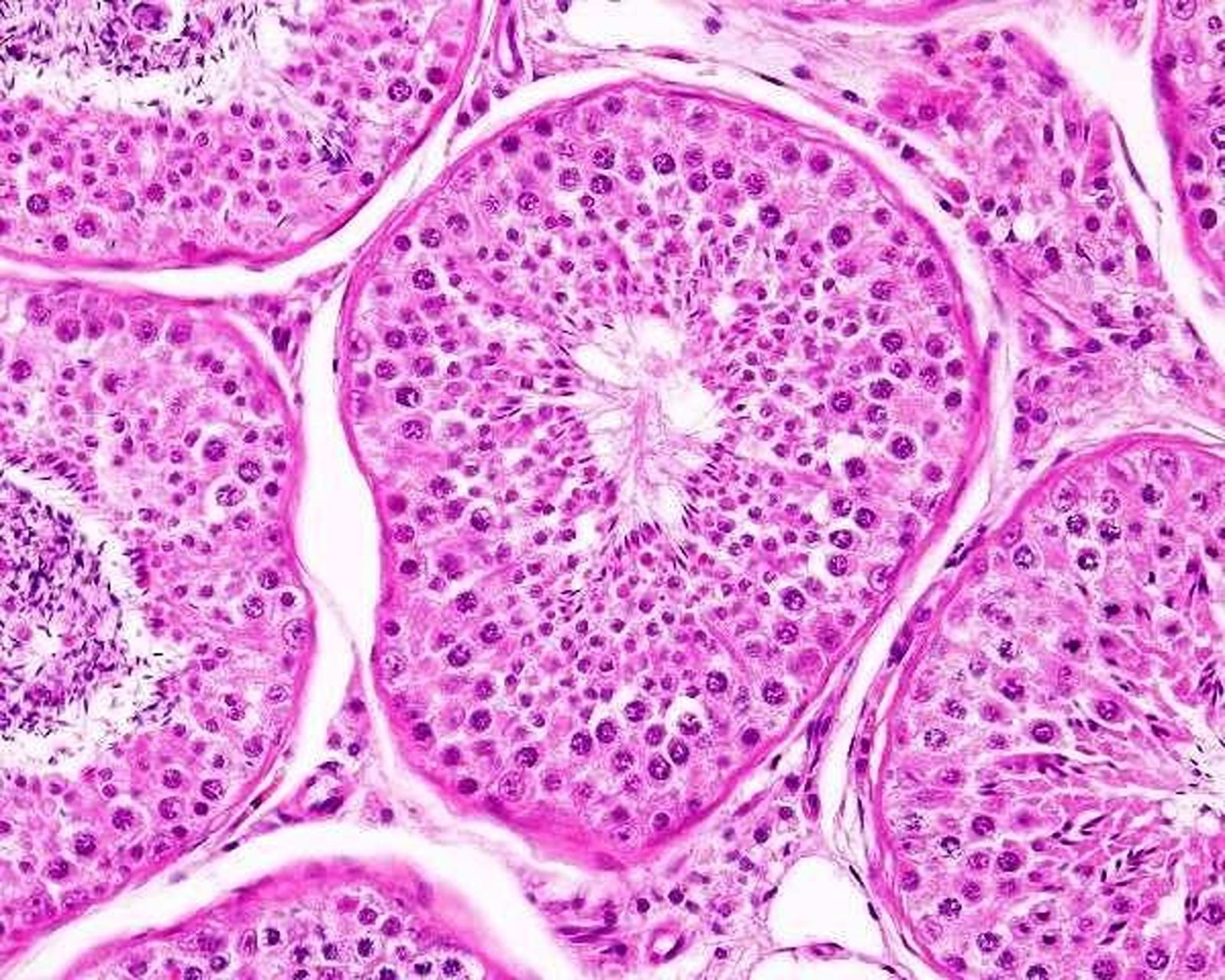
Articles & Insights
The Intricate Process of Differential Diagnosis in Azoospermia
Azoospermia is a form of male infertility characterized by the absence of sperm in a man's ejaculate. This condition, found in 5 to 10 percent of men evaluated for infertility, can be present from birth or develop later in life. Azoospermia can cause considerable emotional stress and psychological distress, making the differential diagnosis and subsequent management essential for those affected.
Understanding the Significance of Your Hormonal Levels
Welcome to our blog series addressing male infertility factors in the context of azoospermia. Today, we delve into the intricate interplay between hormonal markers and testicular function, specifically focusing on scenarios where FSH (Follicle-Stimulating Hormone) levels coexist with LH (Luteinizing Hormone) and testosterone levels. Understanding these hormonal imbalances is crucial in unraveling the complexities of male fertility issues.
Investigating Varicocelectomy in Non-Obstructive Azoospermia (NOA): A Review of its Impact on Male Fertility
Recent advancements in male reproductive health have brought attention to varicoceles in cases of non-obstructive azoospermia (NOA). Varicocelectomy, a surgery aimed at correcting varicoceles, potentially assists in the reappearance of sperm in the semen of some NOA patients.
Comprehensive Guide: Essential Diagnostic Tests for Azoospermia Diagnosis
A comprehensive guide on essential diagnostic tests crucial for the diagnosis of azoospermia, a condition marked by the absence of sperm in the ejaculate. Understanding the intricate factors contributing to male infertility necessitates a thorough evaluation encompassing a range of diagnostic assessments.
How Successful Is Surgical Sperm Retrieval in Klinefelter Syndrome?
Klinefelter Syndrome: it's a name that might sound unfamiliar, but for those diagnosed, it represents a unique journey of challenges and triumphs. Klinefelter Syndrome is a genetic condition that affects males who are born with an extra copy of the X chromosome. This syndrome can impact testicular growth, leading to smaller than normal testicles resulting in lower production of testosterone.
The Role of Hormone Stimulation in Men With Non-obstructive Azoospermia Undergoing Surgical Sperm Retrieval
Hormone stimulation plays a crucial role in male fertility. For men with NOA, hormone therapy can enhance sperm production and increase the likelihood of finding sperm during extraction.
Understanding Azoospermia and the Intracytoplasmic Sperm Injection (ICSI) Process
If you're dealing with Azoospermia, ICSI might be your knight in shining armor! ICSI is a specialized form of in vitro fertilization (IVF) that is commonly used to overcome male infertility issues. It's a process where a sperm cell is directly injected into an egg's cytoplasm, bypassing the need for the sperm to travel to the egg on its own.
The Art of Naturopathic Healing in Fertility
Naturopathy, also often referred to as Naturopathic medicine, is a system of healing that uses non-toxic, non-invasive, and natural methods to support the body to heal. Naturopathic medicine and its practitioners see the human body as a whole, integrated system whereby one system never works in isolation. By working on the entire body, one’s healing capacity and homeostasis can be optimised.
PESA vs MESA: A Comprehensive Comparison for Obstructive Azoospermia Treatment
Obstructive azoospermia, a condition characterized by the production but blockage of sperm release, affects approximately 40% of azoospermic males. It's a significant cause of male infertility, but the good news is that various treatment methods can potentially rectify this issue and pave the way towards parenthood. Two of the most common procedures utilized are Percutaneous Epididymal Sperm Aspiration (PESA) and Microsurgical Epididymal Sperm Aspiration (MESA). This blog post provides a comprehensive comparison of these techniques to help you make an informed decision about the best treatment option for you.
Navigating Azoospermia Due to Sertoli Cell Syndrome: Insights and Practical Advice
When the azoospermia is due to Sertoli Cell Only Syndrome (SCOS), a condition where the seminiferous tubules in the testes contain only Sertoli cells with no sperm-producing cells, the journey to fatherhood might seem daunting. However, with the right information, support, and medical intervention, it's possible to navigate this journey successfully.
Understanding the Impact of Environmental Factors on Male Fertility and Azoospermia
Male fertility is a complex issue that is influenced by various factors including lifestyle, genetics, and the environment. More and more, research is highlighting the detrimental impact environmental factors can have on the quality of male sperm and overall fertility.
Decoding Semen Analysis: Understanding Male Fertility
Semen analysis is an indispensable tool in assessing male fertility, yielding valuable insights into the efficiency of sperm production and the integrity of the structures responsible for sperm transport. Let's delve into the clinical significance of semen analysis results and their implications for fertility.
Enhancing Male Fertility: The Potential of Scrotal Cooling
Male fertility is a complex issue that is influenced by various lifestyle factors, genetic issues, and environmental conditions. One aspect that has been gaining attention in recent years is the impact of heat stress on male fertility.
Complete Guide to microTESE Pre- and Post-Op Care
Welcome to your journey towards parenthood! You've made the important decision to undergo a microscopic testicular sperm extraction (microTESE), a procedure that holds the promise of fulfilling your dreams of having a family. In this guide, we will walk you through the intricacies of the microTESE surgery, what to expect during your hospital stay, and the steps to follow once you return home.
Efficacy of Second Micro-TESE in Men with Non-obstructive Azoospermia
The emotional impact of a failed Micro-TESE on patients can be profound. Infertility often carries a significant emotional burden, including feelings of guilt, shame, and inadequacy. The failure of a procedure like Micro-TESE, which may have been seen as a last resort, can exacerbate these feelings and lead to symptoms of anxiety and depression.
Leydig Cells and Non-Obstructive Azoospermia: A Fresh Perspective on Male Infertility
In this blog post, we aim to simplify the complex scientific discourse around NOA and bring you a layman's interpretation of recent scientific research, specifically a study titled “ Leydig Cells in Patients with Non-Obstructive Azoospermia: Do they Really Proliferate?
A Deep Dive into Azoospermia: Unraveling the Complexities of Pregnancy Outcomes and Neonatal Health in ICSI Procedures
Embarking on the path to parenthood, every step is a marvel of nature's biological complexity. Yet, for some couples, this path is fraught with hurdles, with male infertility being a significant impediment. Azoospermia, a condition that entails the absence of sperm in a man's semen, is a leading contributor to such infertility issues.
Understanding the Risk of Hypogonadism Due to Micro-TESE Procedures
Microscopic testicular sperm extraction (micro-TESE) is a revolutionary treatment for severe male factor infertility, particularly in cases of azoospermia, where an absence of sperm in the semen is observed due to anatomical obstructions or very low/no sperm production.
Microsurgical Sperm Extraction(mTese): A Ray of Hope for Men with Non-Obstructive Azoospermia
A recent study compared the success rates of microsurgical and conventional testicular sperm extraction procedures in men diagnosed with NOA. The results painted a promising picture for the microsurgical approach, also known as microTESE.
The Impact of Alcohol on Male Fertility: A Close Look at Azoospermia
Male infertility is a complex issue impacted by various genetic, hormonal, physical, and lifestyle factors. One such factor, often overlooked, is alcohol consumption. In this post, we'll delve into the nuances of a specific fertility condition called azoospermia, exploring how alcohol can contribute to its occurrence and the potential for its reversal.





















